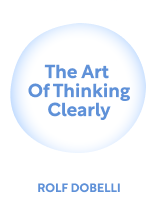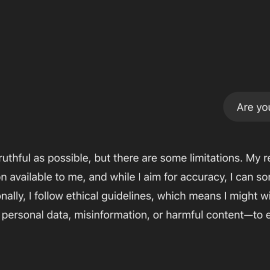

This article is an excerpt from the Shortform book guide to "The Art of Thinking Clearly" by Rolf Dobelli. Shortform has the world's best summaries and analyses of books you should be reading.
Like this article? Sign up for a free trial here .
What is social comparison bias? Why do we constantly compare ourselves to others?
Social comparison bias is the feeling of competitiveness and dislike towards someone who is perceived to be better than you. According to Rolf Dobelli, the author of The Art of Thinking Clearly, social comparison bias forms from group membership.
Keep reading to learn about social comparison bias.
Social Comparison Bias
Social comparison bias is the tendency to have feelings of dislike and competitiveness with people who are in some way perceived better than you. This involves refusing to help someone out of fear that they’ll take your spot in the group. This is a defense mechanism: You don’t want to lose your position in the group, so you won’t help others even if doing so would help the group.
Social comparison bias is especially prevalent in the business world, Dobelli says. People hire below their own skill level so they don’t feel threatened. By hiring less qualified people, however, you ensure your business won’t excel: It’ll be limited by your abilities and the lesser abilities of your employees. Instead, improve your company by hiring the best, even if they’re better than you.
(Shortform note: A barrier to hiring the best people might be worry about how to manage people who are smarter than you. In this situation, focus on what you bring to the team and how to create an environment where your employees can best use their expertise. In addition, acknowledge the areas in which you fall short and learn from your more experienced employees.)
Upward and Downward Social Comparison
While Dobelli defines social comparison bias as refusing to help others out of fear of being outclassed, other sources define it more generally as a sense of competitiveness and dislike stemming from comparison. They break social comparison into two categories: upward and downward.
Upward social comparison means comparing yourself to those who are better than you. This can either motivate you to improve or lower your self-esteem. Meanwhile, downward social comparison means comparing yourself to those who are somehow worse than you. This either boosts your self-esteem or leads to the problems Dobelli explores above.
So how can you get the benefits of healthy competition without damaging your self-esteem or ruining your company?
- Be humble. It’s difficult to admit that someone else is better than you, but doing so helps you in the long run.
2. Approach upward social comparison with curiosity rather than jealousy. Look at how others became successful and how you can use that knowledge.
3. Seek out your betters, rather than running from them, so you can learn from them. This gives you an advantage over your competition and helps you excel.

———End of Preview———
Like what you just read? Read the rest of the world's best book summary and analysis of Rolf Dobelli's "The Art of Thinking Clearly" at Shortform .
Here's what you'll find in our full The Art of Thinking Clearly summary :
- A detailed look at the most common logical fallacies that inhibit decision-making
- How to recognize and overcome these fallacies to make better decisions
- Why you value things for arbitrary reasons






